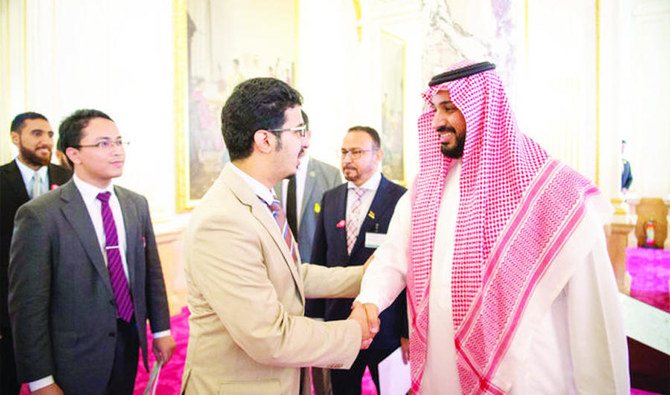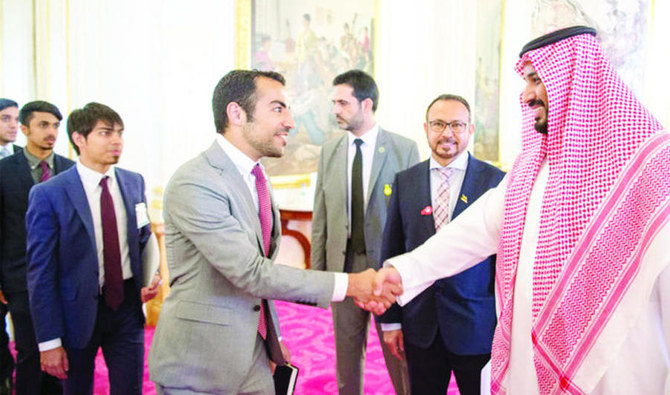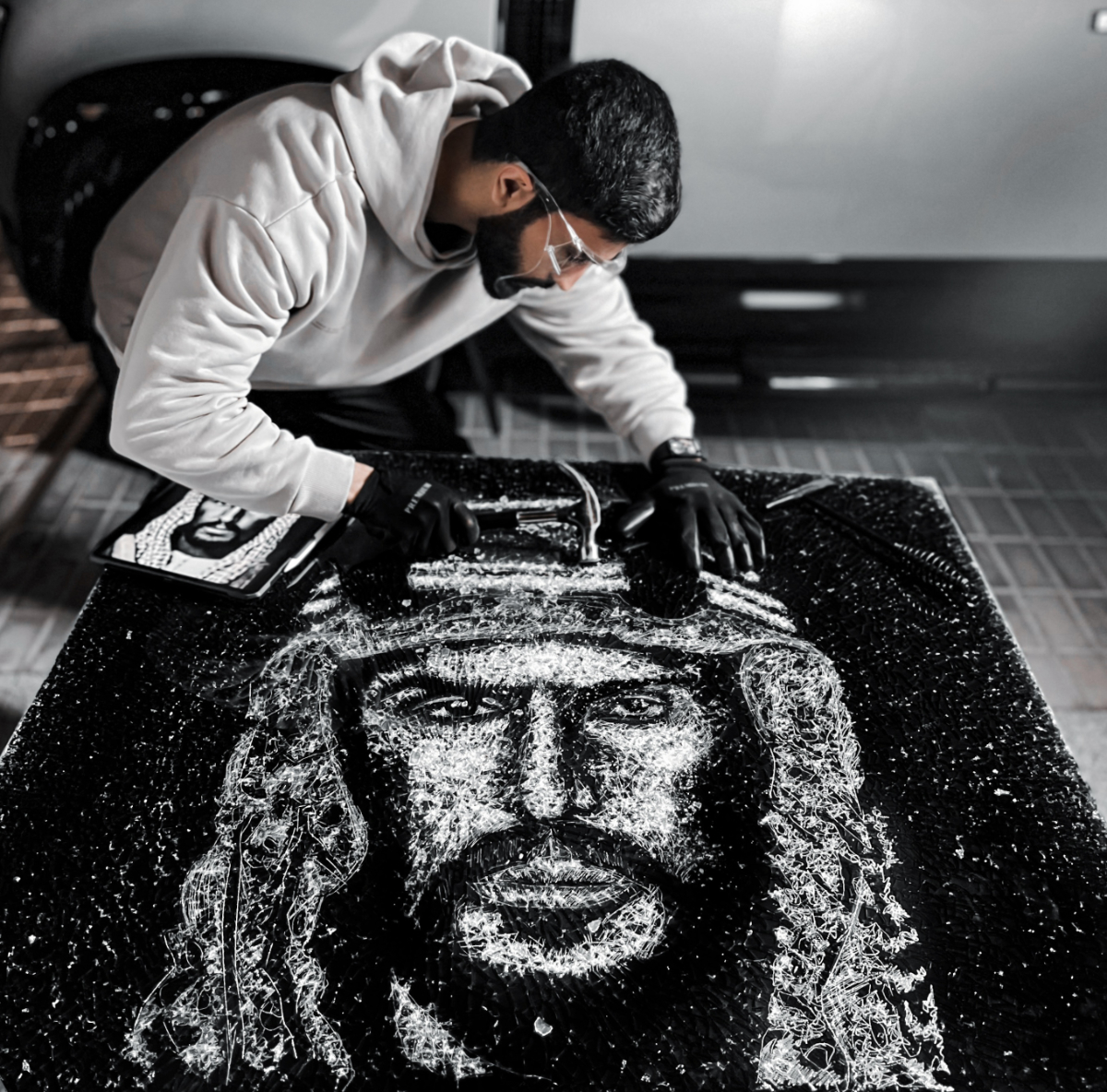TOKYO: Japan is one of the most popular foreign countries for young Saudis. A love of anime and manga, a myriad of cultural similarities, and a surge in the popularity of J-Pop, cosplay, and Lolita fashion are all reasons why Japanese culture has such strong roots in the Kingdom, so it is no surprise Saudi students are studying in Japan.
Prior to 2007, Saudis wishing to do so could only apply independently to study at Japanese universities, provided they could fund it themselves. Then came the King Abdullah Scholarship Program, making the process not only easier, but also more affordable.
Due to the highly competitive nature of Japanese university entrance exams, the limited number of seats allotted to foreign students, and even the completely foreign nature of the language, gaining entry to a Japanese university is notoriously difficult.
However, Arab News reported in 2014 that at least 600 Saudi students had enrolled in Japanese universities since the scholarship program began in 2007. And in 2016, a survey conducted by the Japan Student Services organization put the number of Saudi students across Japan at 533.
Arab News spoke to several students who offered a glimpse into the highly coveted world.
Abdulhadi Mubarak, currently studying for a master’s degree, told Arab News that he found living in Japan very pleasant, though the experience was not without its drawbacks and communication issues.
“You can draw parallels between Saudi and Japanese society. For example, it is hard to make local friends here. People in Saudi Arabia and Japan communicate indirectly. For example, in some regions in Saudi Arabia if you get served coffee after lunch or dinner, it means you should drink it and leave. In Japan, people don’t explicitly say ‘no,’ if someone says ‘it’s difficult’ then it means ‘no,’” he explained.
However, he finds the experience refreshing, especially being able to correct people’s misconceptions of what the Kingdom is really like. “I like to ask Japanese people what image they have of Saudi Arabia; half probably don’t have any idea at all, the first response is always about oil or having a strong football team, the second is camels, and a few ask about how things like marrying four women works.”
Omar Al-Ghamdi is a student at the Kanagawa Institute of Technology, studying computer science. He finds living in Japan “comfortable” though he also finds forming significant relationships challenging.
“Japan is a very comfortable place to live, from services provided to all kinds of transportation, to how you get treated as a customer, but building relationships with the people here was hard even for a fluent Japanese speaker. It’s like they have emotional walls put up against strangers, so to get to talk to them and ask them out to hang or become friends is a little harder than others.”
The relative difficulties with communication do not stop there. Saudi Muslims, and indeed Muslims in Japan in general, face some degree of difficulty in connecting with each other due to the relatively small size of the community.
The number of Muslims in Japan stands at about 185,000, according to the Pew Research Center, accounting for about 0.1 percent of the population of 126.8 million, reported by the World Bank. The number of mosques in Japan is about 200, most of which are situated in Tokyo, making it difficult for those in rural areas of Japan to visit one on a regular basis.
Khalid Al-Otaibi is currently working toward a master’s degree in management at the Nagoya University of Business and Commerce. He moved to Japan in the summer of 2016 to work with a company for breast cancer awareness, and was accepted as one of the King Abdullah Scholarship students in 2018.
FASTFACT
• Saudi Arabia ranks third in the world in terms of anime popularity, second only to Japan and the Philippines.
• In 2016, a survey conducted by the Japan Student Services organization put the number of Saudi students across Japan at 533.
• Japan is home to around 185,000 Muslims and 200 mosques.
Al-Otaibi told Arab News that despite the lack of documented numbers, he met many Japanese Muslims himself. “The Muslim community in Japan is small, but I am surprised to face many Japanese people who either study Arabic or have embraced Islam. I volunteer sometimes to teach Arabic.”
However, despite his relationship with the community, he prefers to spend Islamic holidays back home. “I try my best to spend Ramadan in Saudi Arabia and not in Japan. Japan’s work culture is busy and work time there is almost considered natural. Fasting there while everyone is working and with the summer heat is a bit tough. But Eid holidays are better; we pray at the local mosque and greet the people there.”
Sara Taha Noor, 30, received her master’s degree while living as a scholarship student in Japan. She spoke to Arab News about how the Islamic community helped her cope during her years there. “When I visited the Turkish mosques there I met a lot of Muslims from different nationalities. I would mostly spend holidays alone, but from time to time during Ramadan, I would gather with my Muslim friends, both Arab and non-Arabs, for iftar.”
However, she still maintains contact with her Japanese friends, and thinks back on her time living in the country with great fondness. “I had virtually no difficulties while I was there — the Japanese people were so kind and respectful.”
In recent years, more and more options have been made available to Saudis wishing to travel to Japan to study, and not just for university degrees. The Misk Foundation and Manga Productions have sponsored several trips for Saudis of varying ages and levels of education to partake in courses at various Japanese institutions.
With areas of study ranging from automotive engineering to video game development, with all costs covered, the programs are useful for young Saudis contemplating the experience but wanting to know what it could be like first.
Mashael Abualnaja works in the hotel trade and signed up for the Misk game development program.
She says her experience in Japan has been amazing so far, and she would definitely consider moving there in the future. “People think of Japan as almost a planet on its own due its uniqueness, but it’s actually full of people like us, which you can see just by walking the streets and interacting with them.”
For Mubarak, Tokyo’s rich cultural atmosphere is the best part of living in Japan. “My favorite thing about Tokyo is how many subcultures and hobbies there are. The music scene, fashion scene, food scene and the otaku (anime) stuff.”
Taha Noor, however, just kept it simple. “I just love Japan. I love Japanese people, and I love communicating with them.”

































